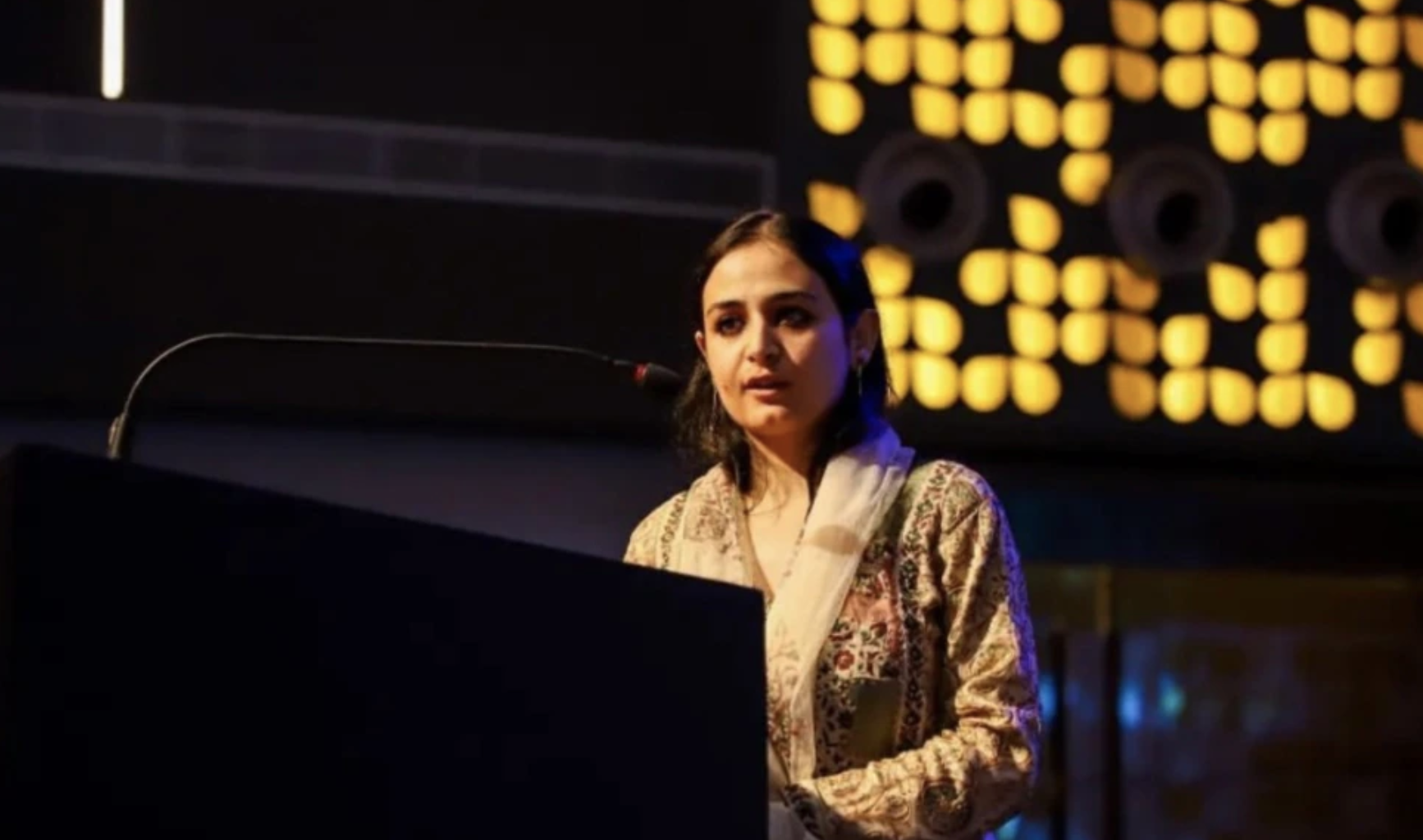The Pulitzer Prize ceremony will note the absence of a Kashmiri journalist
Kashmiri photojournalist and 2022 Pulitzer Prize winner Sanna Irshad Mattoo, seen in this undated photo from her Instagram, has been barred from traveling to New York to attend the awards ceremony. | Photo Credits: VOA
On Thursday, journalists from different parts of the world will attend the 2022 Pulitzer Prize ceremony in New York, but one female award winner will be absent.
Sanna Irshad Mattoo, a Kashmiri photojournalist who shares this year's Feature Photography award with three other Indian journalists for their coverage of the COVID-19 crisis in India, was barred from boarding her flight to New York on Monday.
"I was stopped at immigration at Delhi airport and barred from traveling internationally despite holding a valid US visa and ticket," Mattoo tweeted, adding it was the second time this year that she was denied traveling outside India.
Indian authorities have not explained why they have imposed a ban on Mattoo's travel out of the country.
"We are disappointed that Sanna Irshad Mattoo, a contributor to Reuters, has not been allowed to travel to the United States to receive her Pulitzer Prize in New York alongside her peers," a Reuters spokesperson told VOA. "We believe that journalists should be able to travel freely."
Despite her absence, Matto will be awarded her share of the $15,000 prize to be divided equally among four Reuters journalists, including Danish Siddiqui who was killed in Afghanistan in July 2021.
"[Mattoo's] absence due to the Indian government preventing her travel abroad will be noted," Marjorie Miller, Pulitzer Prizes administrator, told VOA, adding that Mattoo is the only journalist prevented from attending this year's award ceremony.
Widespread condemnations
Journalists and free press advocates have condemned the Indian travel ban on Mattoo.
"This decision is arbitrary and excessive. Indian authorities must immediately cease all forms of harassment and intimidation against journalists covering the situation in Kashmir," said Beh Lih Yi, Asia program coordinator at Committee to Protect Journalists, in a statement on October 18.
"In India, arbitrary travel bans have increasingly become the principal tactic of the authorities to silence independent and critical voices in the country," Amnesty International said in a statement on the same day.
In July, Aakash Hassan, another Kashmiri journalist, said Indian immigration authorities barred him from traveling to Sri Lanka without giving him a justification.
Earlier this year, a group of U.N.-affiliated human rights experts called on the Indian government to stop systemic harassment against a prominent Muslim Indian journalist.
Since stripping Kashmir of its symbolic autonomy in 2019, the Indian government has reportedly imposed various heavy-handed tactics to stifle dissent among the majority Muslim Kashmiri population.
Indian authorities say the measures are aimed at tackling Islamic terrorism and sedition in Kashmir, but human rights and free press groups say the policy is repressive and discriminatory.
"The Indian government and nationalist groups are escalating intimidation and attacks against journalists, from trumped up arrests and legal charges to coordinated online and offline abuse," Suzanne Nossel, chief executive officer at PEN America, told VOA.
"The Indian government not only condones but encourages this abuse, especially against journalists raising the alarm about the rising tide of discrimination and hatred against Muslim communities."
India's ranking in the World Press Freedom Index this year dropped to 150th place from previous year's 142nd rank out of 180 nations, in which 1 is the freest, according to media watchdog Reporters Without Borders.
Source: VOA

